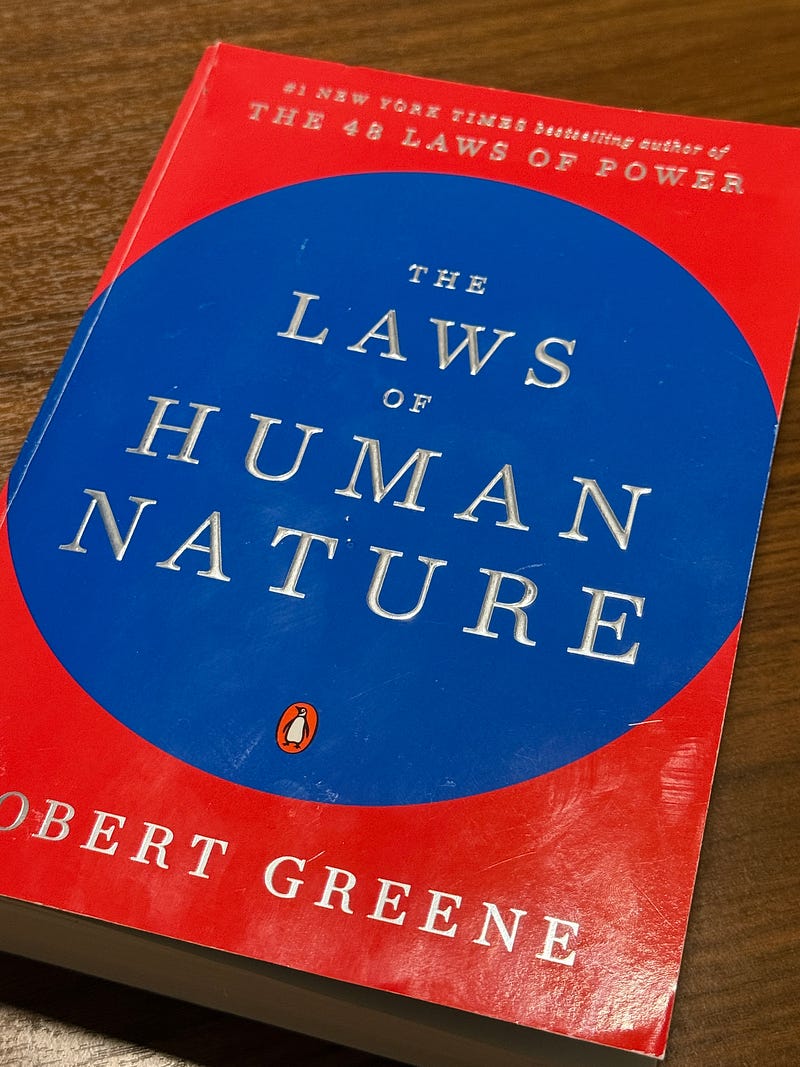We are told to kill our ego. Robert Greene suggests the opposite. Strengthen it just enough, and it turns into a springboard for radical empathy.
A world drowning in mirrors
Open your phone. Scroll for ninety seconds. You will find vacation highlight reels, rants, polished humble-brags, and maybe one lonely fundraiser post that earned only a handful of likes. The algorithm rewards spectacle, not listening. No wonder surveys track a gentle slide in empathy scores year after year.
Robert Greene sees the trend yet refuses the quick moral shrug. In chapter two of The Laws of Human Nature, he argues that the cure for runaway narcissism is not modesty. It is a stronger, steadier kind of self-regard: a self capable of turning its gaze outward.
I spent a week distilling that idea, testing it inside my own memories, and translating it into tactics you can try before tomorrow’s stand-up. Here is what surfaced.
Mapping the spectrum
Greene does not split people into saints and egomaniacs. He draws a spectrum.
Deep narcissist
Childhood attention came in spikes of neglect or excess. As adults they still hear the crowd gasp or boo inside their head. Every slight feels fatal.
Healthy narcissist
Enough praise, enough failure, enough time alone. Their inner voice learned to whisper, You are fine, keep going. Because the well is full, they can pour water for others.
Echoist
Praise felt unsafe, maybe even punished. They shrink from any spotlight, which can look humble yet often masks fear.
Most of us slide back and forth. Awareness of the drift is step one.

My two collisions with the mirror
Status meeting meltdown
Year one of product leadership. Big client on the call. I wanted to appear bulletproof. When a junior engineer raised a risk about the deadline, I cut him off mid-sentence. The rest of the room went silent. We shipped on time, but morale limped for weeks. That win tasted hollow because it was rooted in my own insecurity, not shared purpose.
The friend I misread
A close friend answered my jokes with half smiles over coffee. I decided she must think my career was sliding. I grew stiff. The conversation died. Hours later, she texted that her uncle had collapsed that morning. My self-centered narrative had erased her pain in real time.
Two scenes, same lesson: when the ego screams, the ears stop working.
Building the inner thermostat
Greene’s prescription is disarmingly practical: strengthen the self first, then face outward. Think of it as calibrating a thermostat. Set too low, feedback chills you into paralysis. Too high, criticism overheats into rage.
Three daily drills to set the dial:
- Two-minute victory log
At night, scribble the smallest win: fixed one sneaky off-by-one bug, got my children to nap in under 10 minutes. The list trains the brain to supply validation internally. - Micro-pause before reply
Any comment that pricks the skin earns at least three breaths before the response. Often, the breath is long enough to remember that other people’s words come from their weather, not my worth. - One deep dive conversation
Pick a colleague, neighbour, or barista. Ask a question that needs more than a yes or no. Listen until they stop twice. Reflect on one detail they did not expect you to catch. The practice rewires attention outward.
Do these for a month and watch the mirror fog over. You will still see yourself, just not in high definition.
Reading moods like a silent movie
Greene splits empathy into two overlapping skills.
Visceral listening
We sense micro-tensions first in the body. Shoulders inch up, voices tighten on certain phrases. Most leaders plough through agendas anyway. Try pausing when you spot the twitch. Mention it with curiosity, not accusation. People relax when you prove you noticed.
Analytic empathy
Patterns live in data. What time stamps do late-night commits cluster around? Which teammate defends junior devs but sours under top-down orders? Keep a lightweight journal of such observations. Over weeks, a human API document emerges for each person you work with.
Blend gut and notes, and your odds of misreading a room drop sharply.
Applying the spectrum at work
Scenario one: An engineer misses two sprints in a row.
Old reflex might label her lazy. Instead, open with a question: “I noticed the last two tasks rolled over. Something blocking you?” She may reveal a maze of family duties or unclear specs. Either way, you get a signal, not story-making.
Scenario two: You push a bold architecture choice past the team.
Next morning, invite dissent early. “If I missed an edge case, tell me now before prod does.” Owning the potential blind spot proves your ego can survive critique, which invites genuine debate.
Scenario three: Burnout whispers to you at 2 a.m.
Close the laptop. Write a letter to your future self explaining why the work matters. Seal it. Tomorrow at lunch, read it. If the words still ring true, continue. If not, plan a course correction before resentment curls in.
Owning the digital mirror
Social feeds are empathy’s junk food, yet they can nourish when consumed deliberately.
- Replace thirty minutes of doom scroll with ten thoughtful comments on posts you usually skim.
- Before posting, ask if the share is a window or a mirror. Windows let others look out with you. Mirrors beg them to look at you. Aim for sixty percent windows.
- Once a quarter, prune accounts that spike envy or outrage without delivering insight.
Do that and your phone becomes less casino, more coffee shop.
Closing loop
Greene’s counterintuitive gift is permission to like ourselves on purpose. Do it poorly and you become the caricature who hogs the spotlight. Do it well, and you generate enough internal light to see everyone else.
So tonight jot two wins, breathe before hitting send, and ask one person a question that needs a real answer. Tomorrow repeat. Day by day you will feel the volume knob of self-concern settle into a steady hum. The quieter it grows, the clearer other voices sound.

Enjoyed this piece?
If this piece was helpful or resonated with you, you can support my work by buying me a Coffee!

Become a subscriber receive the latest updates in your inbox.







Member discussion